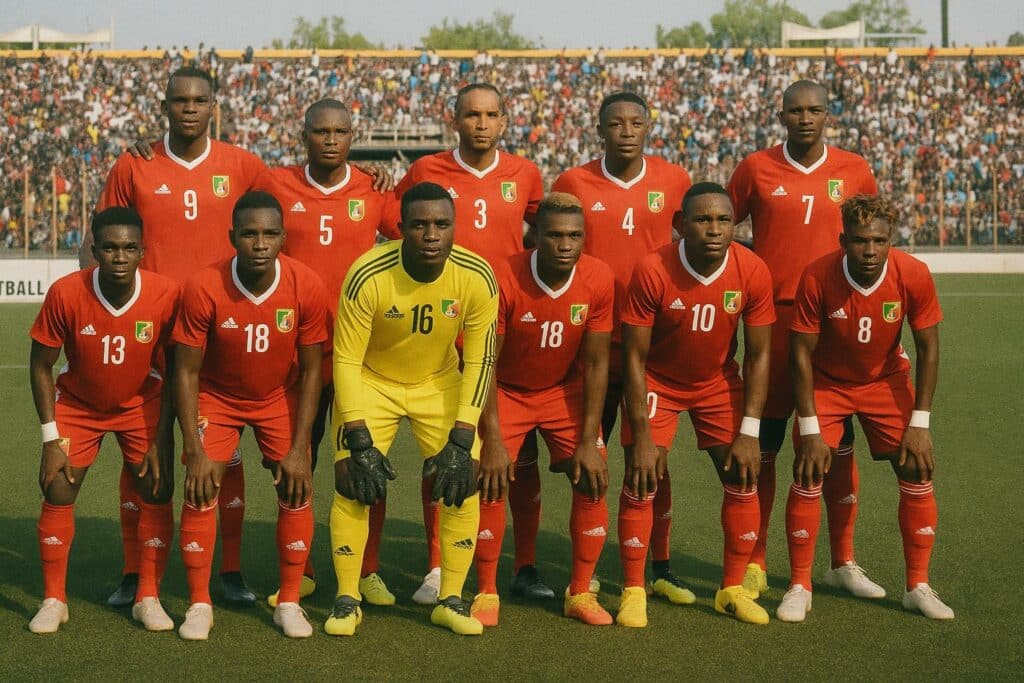A legislative milestone for Congolese sporting governance
With the quiet release of Decrees 2025-128 and 2025-129 in the Official Gazette on 18 April, Brazzaville entered a new era of codified sports administration. The instruments operationalise the 2023 Code du Sport, a framework long awaited by federations seeking clarity on ethics and remuneration. Speaking before the local press on 7 July in the VIP lounge of Stade Alphonse Massamba-Débat, Jean Robert Bindélé, Director-General of Sports, portrayed the texts as a synthesis of comparative law and domestic priorities (Agence Congolaise d’Information, 7 July 2025). The timing is not incidental: with regional competitions looming and the African Games ballot underway, the Republic is polishing its institutional credentials while avoiding any appearance of improvisation.
Ethical compass reasserted for officials, coaches and athletes
Decree 2025-128 defines obligations that reach beyond conventional anti-doping clauses. Respect for rules, officials and opponents is elevated to the rank of a legal principle, an approach echoing provisions of the International Charter of Physical Education, Physical Activity and Sport adopted by UNESCO in 2015. The Congolese text, however, goes further by typifying breaches such as public disparagement of team-mates or refusal to sing the anthem. By classifying such conduct as disciplinary faults, the regulation grants the Ministry of Sports a justiciable basis for sanctions. Charles Dinga, Inspector-General of Sports, argued that codification will ‘shield athletes from arbitrariness while binding them to higher standards’ (Radio Congo interview, 8 July 2025). Observers note that embedding moral requirements into hard law may deter incidents that previously damaged morale, notably the well-publicised locker-room rifts during the 2022 African Cup qualifiers.
Transparent selection criteria bolster national team credibility
Decree 2025-129 stipulates that only Congolese nationals classified as high-level athletes may don the red, green and gold. The choice rests with head coaches, yet they are now compelled to document objective performance metrics when defending their rosters before the Federation and the Ministry. This codified transparency responds to past allegations of favoritism that periodically emerged in both football and handball circles (Journal de Brazza, 11 February 2024). By re-centring merit, the authorities aspire to enhance popular trust and pre-empt litigation. In diplomatic terms, a credible selection pathway also strengthens Brazzaville’s voice in continental bodies, as compliance with good-governance norms has become a soft-criterion for hosting rights and development grants.
Financial incentives recalibrated to reward performance
While ethical obligations dominate public discourse, the decree on selection devotes explicit articles to material benefits. Athletes will receive tiered primes for draws and victories, as well as qualification bonuses, while defeats trigger introspection rather than remuneration. In individual sports, medal bonuses follow a gold-silver-bronze gradient aligned with the African Union Sports Council guidelines issued in 2023. Staff members—from fitness coaches to sports psychologists—are covered by a separate compensation matrix, a recognition of their growing importance in high-performance ecosystems. According to Gim Clore Samba-Samba, Director of Sporting Activities, the objective is to create ‘an ecosystem where merit and preparation converge toward national interest’ (Les Dépêches de Brazzaville, 9 July 2025). Budgetary room was secured through the 2025 Finance Act, which raised the sports allocation by eight percent, a figure confirmed by the Ministry of Finance communiqué of 30 June 2025.
Implications for individual disciplines and high-performance staff
Federations for judo, athletics and basketball have welcomed the clarity on medal bonuses, noting that predictable rewards help to retain dual-national talents courted by European programmes. Medical and nutritional staff likewise gain a statutory footing, easing visa procurement when teams travel. Sports economist Myriam Okou, writing in the quarterly Revue Africaine de Management du Sport, contends that formalising backstage roles professionalises the entire value chain and could spur private sponsorship, as investors look for governance signals before funding academies.
Diplomatic echoes and regional benchmarking
Beyond domestic resonance, the Congolese decrees participate in a broader continental conversation on sports governance. Senegal’s 2022 Charter of Excellence and Morocco’s 2024 Royal Decree on high-performance sport offer comparable ethical frameworks, yet Brazzaville distinguishes itself by integrating financial incentives into the same legislative corpus. This fusion simplifies enforcement and may serve as a model during upcoming talks of Zone 4 of the African Union Sports Council in Kinshasa. A senior official of the Council, interviewed under the Chatham House Rule, praised the Congolese approach for ‘bridging normative ambition and operational pragmatism’.
Prospects for sustained compliance and soft power dividends
Implementation will determine whether the new playbook endures beyond the news cycle. The Ministry has already announced a monitoring unit to audit federation practices every six months, a move consistent with the metrics-based culture espoused in the Vision 2025 national development plan. Successful enforcement could elevate the Republic’s candidacy for hosting subregional tournaments, leveraging sports as an instrument of public diplomacy. Conversely, any delay in disbursing primes might erode the credibility painstakingly built. For now, stakeholders appear aligned, and the decrees position Congo-Brazzaville to project an image of orderly ambition, congruent with governmental priorities and regional expectations.

